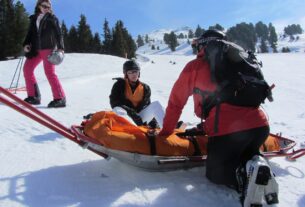Have you ever found yourself worried about getting scammed while traveling? It’s a common fear, and for a good reason. Scammers often target tourists because they are usually less familiar with local customs and regulations. In this article, we’ll cover some practical strategies you can use to recognize and avoid travel scams, ensuring that your adventures remain memorable for all the right reasons.
🌴 Get Your FREE Bahamas Checklist!
Perfect for planning your island escape 🌊
We respect your privacy. Unsubscribe anytime.
Powered by greattravelnews.com
Understanding Common Travel Scams
Before you can avoid scams, you need to understand how they work. Scammers use a variety of tactics to separate you from your money or possessions. Here are some of the most common scams:
Fake Taxi Services
One of the most prevalent scams involves fake taxi drivers. These individuals may overcharge you or take you on a long, unnecessary detour to hike up the fare.
- How to Spot It: Check if the taxi has a meter. If it does, notice if the meter is running normally. Always use licensed taxi services.
- How to Avoid It: If you’re unsure, use ride-sharing apps like Uber or Lyft, where you can track your route in real-time.
Fake Police Officers
In some countries, scammers may impersonate police officers and ask to see your passport or wallet, only to steal your money or personal information.
- How to Spot It: Real police officers will rarely ask for your wallet outright. They usually carry proper identification.
- How to Avoid It: Politely ask to see their identification. If you suspect foul play, quickly walk away and seek help from a nearby store or another authority figure.
The “Helpful” Local
A local may approach you offering unsolicited advice or assistance, only to demand a fee afterward or distract you while an accomplice steals your belongings.
- How to Spot It: Be cautious of overly friendly strangers who approach you without any reason.
- How to Avoid It: Politely decline their help and keep an eye on your belongings.
Accommodation Scams
Another common scam involves fake accommodation listings. You may book a room, only to find out it doesn’t exist or is in poor condition.
- How to Spot It: Too-good-to-be-true prices and inconsistent reviews are red flags.
- How to Avoid It: Always book through reputable websites and read multiple reviews. Call the accommodation to confirm your reservation.
ATM and Credit Card Scams
Skimming devices are sometimes placed on ATMs to capture your card information. Similarly, scammers may use your credit card information to make unauthorized purchases.
- How to Spot It: Inspect the ATM for any unusual attachments or cameras aimed at the keypad.
- How to Avoid It: Use ATMs inside banks whenever possible, and notify your bank of your travel plans.
Technology Tips for Safe Travel
With the rise of smartphones and the internet, technology can be your best ally in avoiding travel scams.
Use Trusted Travel Apps
There are plenty of apps designed to make your travel safer and more convenient. From mapping services to translation apps, these tools can be incredibly useful.
- How to Use Them: Download apps like Google Maps, TripAdvisor, and localized taxi apps before you start your journey.
- Benefits: These apps can provide reviews, ratings, and real-time data to help you make informed decisions.
Secure Your Devices
Your smartphone or laptop can be a goldmine for scammers. Make sure they are secure.
- How to Secure Them: Use strong passwords and encryption. Avoid public Wi-Fi for financial transactions or accessing sensitive information.
- Benefits: Enhanced security can prevent unauthorized access, keeping your personal data safe.
GPS and Mapping
Getting lost is a common issue while traveling, one that can sometimes lead to scams. DIY navigational skills have become exponentially easier thanks to modern technology.
- How to Use GPS: Download offline maps if you anticipate a lack of internet.
- Benefits: This ensures that you can navigate your way without needing help from potentially malicious individuals.

Practical Tips to Stay Safe
While technology is immensely helpful, some old-fashioned common sense and precautionary measures can go a long way in ensuring your travel safety.
Keep Copies of Important Documents
Losing your passport or travel documents can be a nightmare, especially in a foreign country.
- How to Implement It: Keep physical and digital copies of your passport, visa, hotel bookings, and tickets.
- Benefits: In case of loss or theft, having copies will significantly speed up the replacement process.
Do Your Homework
Before heading to a new destination, research common scams in that area.
- How to Implement It: Read travel blogs, forums, and government travel advisories.
- Benefits: Being aware of specific scams to watch out for can help you stay vigilant.
Blend In
Tourists are easy targets because they often stand out.
- How to Implement It: Dress modestly and avoid flashy accessories. Learn a few basic phrases in the local language.
- Benefits: Looking less like a tourist can minimize attention from scammers.
Stay in Well-Known Areas
Certain areas are hotspots for scammers.
- How to Implement It: Stick to popular, well-lit locations, especially at night.
- Benefits: Higher foot traffic areas are generally safer.
Handling Money while Traveling
How you handle your money can make a big difference in avoiding scams. Here are some specific tips:
Use Multiple Payment Methods
Relying on a single form of payment can be risky.
- How to Implement It: Carry a mix of cash, credit cards, and traveler’s checks.
- Benefits: Diversification ensures you have a backup if one form is compromised.
Be Discreet
Showing off large amounts of money can attract unwanted attention.
- How to Implement It: Only take out small amounts of cash when paying, and avoid discussing money in public places.
- Benefits: Reduces the likelihood of becoming a target.
Know the Exchange Rate
Scammers often exploit travelers unfamiliar with the local currency.
- How to Implement It: Use a currency conversion app to stay informed about the current exchange rates.
- Benefits: Being informed helps you avoid being overcharged.
Using Public Transportation
While public transportation is a convenient and economical way to get around, it’s also a common setting for scams.
Buy Tickets from Authorized Sellers
Avoid buying tickets from scalpers or unofficial sources.
- How to Implement It: Purchase tickets from official counters or trusted websites.
- Benefits: Ensures you get legitimate tickets.
Keep Your Belongings Close
Pickpocketing is common on crowded buses and trains.
- How to Implement It: Use a money belt or anti-theft bag to keep your valuables secure.
- Benefits: Reduces the risk of theft.
Be Wary of Offers for Help
If someone offers to help with your luggage or directions, be cautious.
- How to Implement It: Politely decline and manage your belongings yourself.
- Benefits: This minimizes opportunities for diversion scams.
Trust Your Instincts
Sometimes, your gut feeling can be your best defense against scams.
Listen to Your Inner Voice
If something feels off, it probably is.
- How to Implement It: If you sense danger or dishonesty, remove yourself from the situation immediately.
- Benefits: Trusting your intuition can prevent many negative experiences.
Don’t Be Afraid to Say No
Some scams rely on social pressure and politeness.
- How to Implement It: Feel empowered to say no to offers that seem too good to be true or make you uncomfortable.
- Benefits: A firm refusal can often deter scammers.
Emergency Contacts and Support
It’s essential to have a plan in case things go wrong. Know who to contact and what steps to take.
Local Emergency Numbers
Every country has different emergency numbers for the police, medical, and fire services.
- How to Implement It: Make a note of these numbers as soon as you arrive in a new location.
- Benefits: Quick access to help in case of an emergency.
Contact Your Embassy or Consulate
Your country’s embassy can offer assistance in dire situations, such as losing your passport or being a victim of a serious scam.
- How to Implement It: Store the contact information of your embassy or consulate.
- Benefits: Provides a reliable point of contact for major issues.
Travel Insurance
Having comprehensive travel insurance can be a lifesaver in many scenarios.
- How to Implement It: Review and purchase a policy that covers a variety of situations, including medical emergencies and theft.
- Benefits: Provides financial and logistical support when things go wrong.
Checklist for Safe Travel
To make sure you’ve covered all bases, here’s a handy checklist:
| Item | Description | Checked |
|---|---|---|
| Research Common Scams | Read about common scams at your destination. | [ ] |
| Travel Insurance | Purchase comprehensive travel insurance. | [ ] |
| Secure Copies of Documents | Keep physical and digital copies of important documents. | [ ] |
| Emergency Contacts | Save local emergency numbers and your embassy’s contact details. | [ ] |
| Authorized Apps | Download and set up trusted travel apps. | [ ] |
| Money Management | Plan a mix of payment methods and understand the local currency. | [ ] |
| Accommodation | Book through reputable sources and confirm your reservation. | [ ] |
| Public Transportation | Buy tickets from authorized sellers and secure your belongings. | [ ] |
| Personal Safety | Blend in, avoid flashy items, and trust your instincts. | [ ] |
Conclusion
Traveling should be a joyful and enriching experience, free from the worry of scams. By understanding common scams, using technology wisely, handling money cautiously, and trusting your instincts, you can significantly reduce the risk of falling victim to these schemes. Carry this knowledge with you on your journeys, and let your adventures leave you with nothing but wonderful memories. Safe travels!




